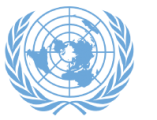Thank you, Under-Secretary-General and Emergency Relief Coordinator Amos. It is my distinct pleasure to co-host this timely event alongside OCHA. You have been an invaluable partner to the UAE and our region in its humanitarian struggles. The challenges that we are currently facing can only be overcome through working collectively… exploring new avenues to deliver on our commitments, and save lives.
I would also like to take this opportunity to offer our appreciation and gratitude to your staff, and more importantly the often at risk, humanitarians on the ground, around the world.
Partnerships always yield better results, especially when they adapt to their evolving surroundings and circumstances. We are obligated, by being humanitarians, to seek efficient and lasting synergies. Forging strong and efficient partnerships is not optional in this field, especially when it means that we could be saving more lives, sending more people to school, feeding them and providing shelter. Etc..
We are obligated by our human nature to work together, to find better ways to do deliver to those of us in need.
The United Arab Emirates has a history rich in philanthropy. Through organizations like the Red Crescent, International Humanitarian City, Dubai Cares, and many individual grant-making organizations, the UAE has always been at the forefront of saving lives in natural disasters and humanitarian crisis (plural), working with many governments, and agencies on the ground… working with many of you who are in this room today.
And through our continued humanitarian efforts and commitments, we have accumulated a wealth of knowledge and understanding about partnerships, which I would like to share with you today.
In UAE, we do not see the act of giving development and emergency aid as a linear relationship between one donor and one implementer. Nor it is transactional and reliant on service delivery. We aim for much more than that. Our organizations approach crises and issues with an eye on sustainable impact. Wherever we provide humanitarian assistance, we seek opportunities to invest for the long-term, especially in education and healthcare. Our goal is to always create conditions for people to build better lives for themselves, and not rely on aid.
Obtaining sustainable results means that partnerships should look beyond addressing current effects of a crisis, and should focus on the root causes of what we face. For example, a successful humanitarian partnership would focus on building schools where the lack of education is encouraging violent extremism.
In our modern understanding of humanitarian partnerships, we found that successful partnerships are multi-stakeholder – which means they include the donors, the experts and actors on the ground, as well as the host countries and governments. And each of them understand that they are accountable for the success, or failure, of a partnership.
We found that the best method to operationalize this approach is via steering committees for joint projects, and we have many examples of how such committees work and succeed.
The Contact Group on Piracy of the coast of Somalia is a success story in our view; the committee governing this group has an agreed framework, defined roles, transparency and more importantly consists of all those involved in making the Somali coasts safe. We find in this committee over 50 countries, regional multilateral institutions like the African Union and the Arab League, UN agencies, labor unions, industry groups experts, as well as, the Somali government with a shared interest in combating piracy. This unique international partnership is contributing toward a significant decline in successful pirate attacks in the region. There has not been a single successful pirate attack in the region in the last two years, and 2012 saw a nearly 75 percent decline in successful attacks over 2011.
One of the reasons why this specific partnership has been successful is that there is also transparency, and a willing to exchange and share information.
The more information we have and share with each other, the better we become at identifying challenges and addressing them.
Sharing information allows partnerships to quantify progress and results, which fosters trust between partners, allowing them to thrive, evolve and grow.
In the humanitarian arena, stories are better told in numbers. However, when numbers do not tell the story we want to hear, we should be honest and transparent enough to address them responsibly.
Nobody plans to fail, but it is impossible to assert that every humanitarian project in the region is a success, and we should not pretend that all of them are.
As humanitarian partners, we have a duty to talk about where our partnerships have not delivered as expected, even going far enough to ask where they may have failed. As partners, we should come together and examine shortcomings, learn from them, and re-emerge with solutions.
Somalia and Yemen, the countries in focus today, provide a range of projects, experiences and partnerships for us to look at, and learn from.
Finally, given the dominating theme of this year’s UNGA, whether we’re talking about Somalia and Yemen, or Iraq, Syria, Libya, Afghanistan, or the States of the African Sahel – extremists are exploiting unstable conditions and rapidly creating demand for efficient humanitarian work. While we work together to find political solutions to these challenges, humanitarians need to step up to the challenge and come up with new partnership models and innovative approaches to help us in our fight against extremism.
I recognize the unique role that OCHA continues to play within the international humanitarian system to convene and influence agendas, and I am pleased to look around the room today and see leaders from across the world who are interested in delivering on a shared purpose: saving lives and protecting livelihoods.
I look forward to hearing about your work.
Thank you


